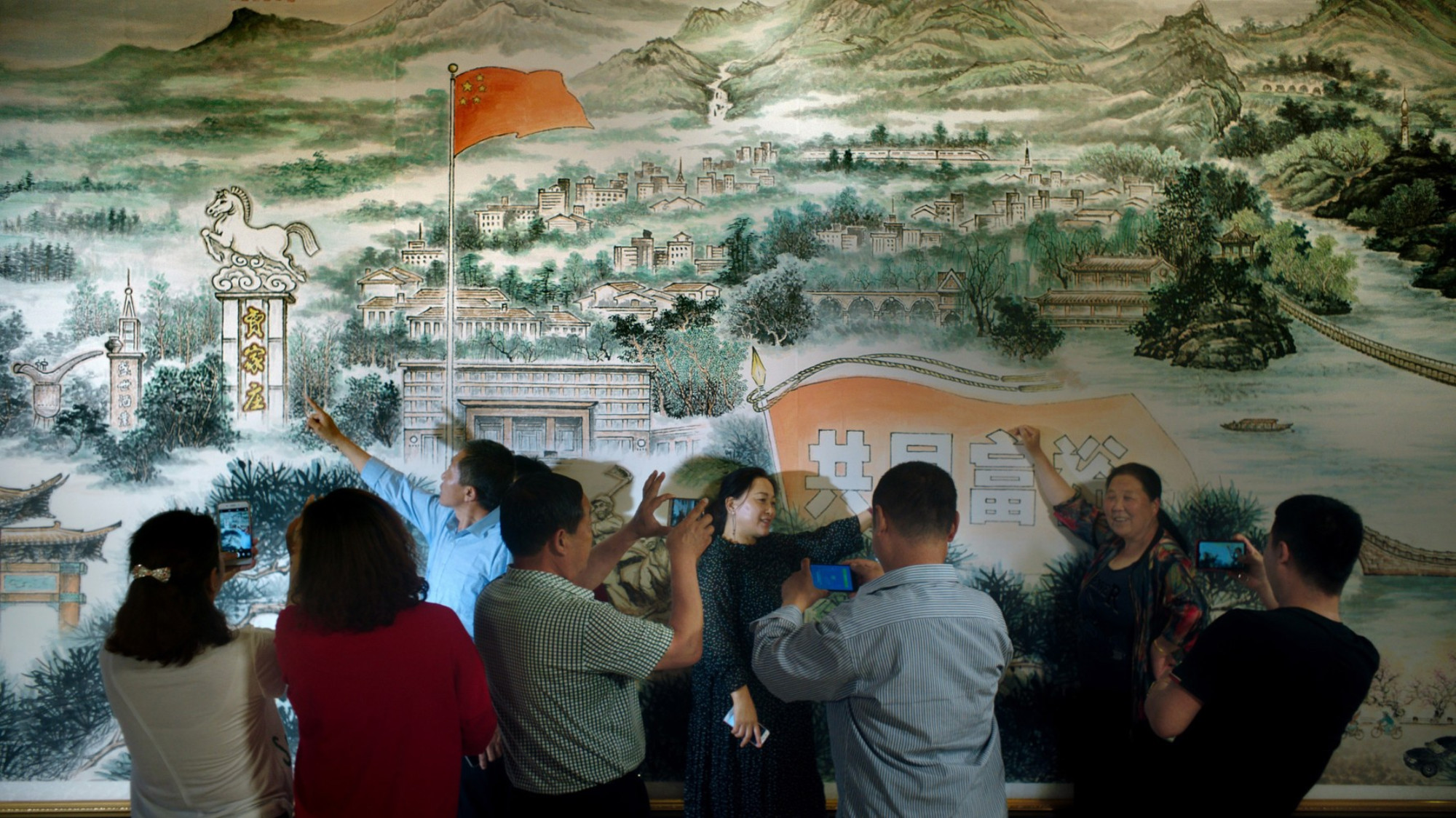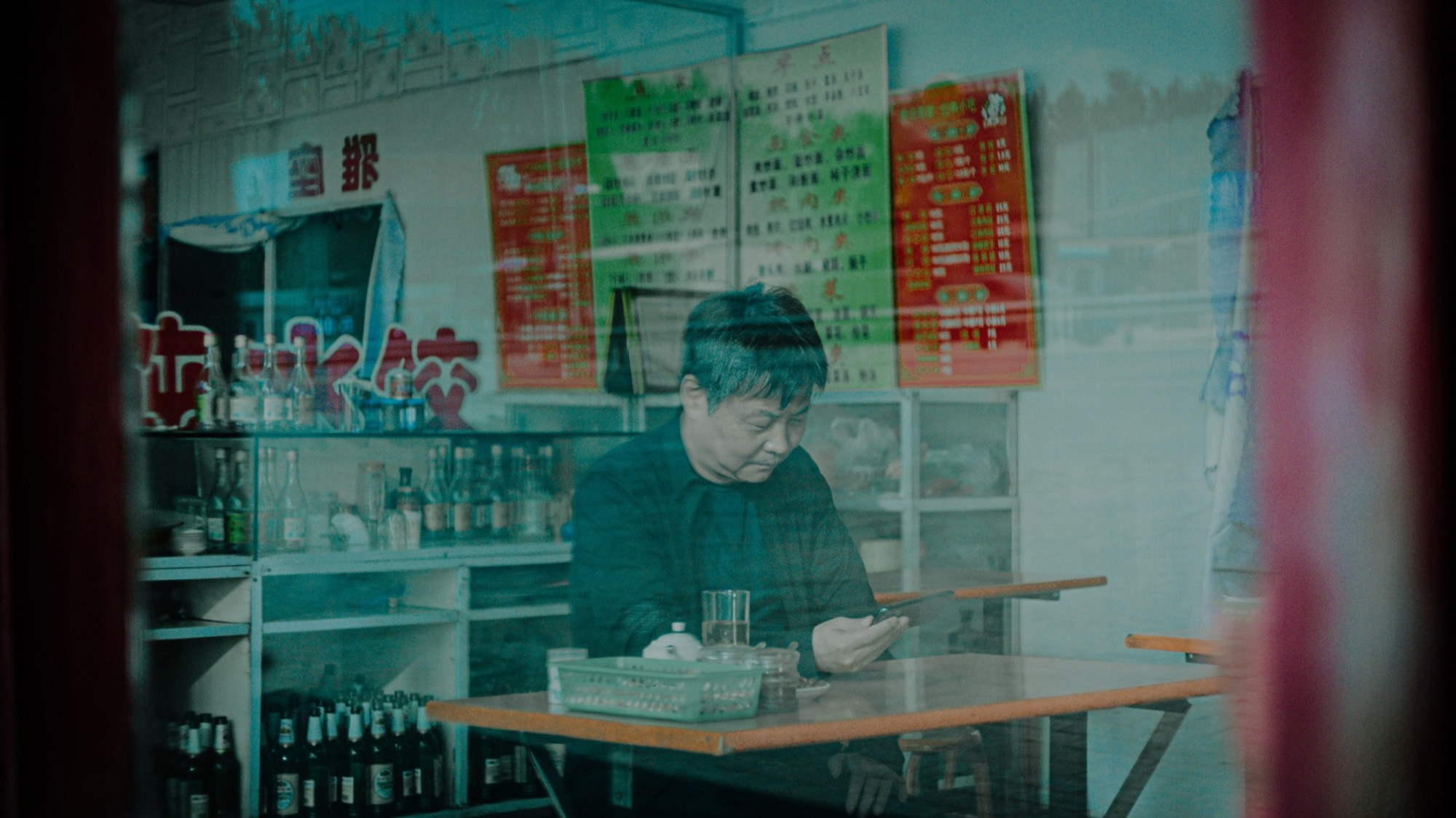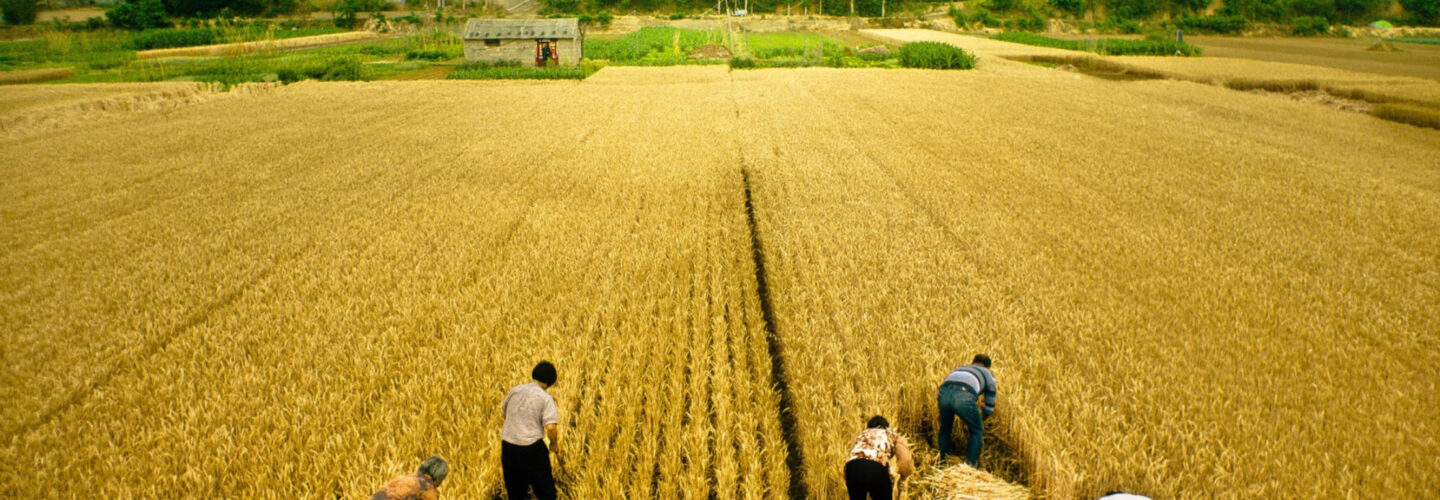
No one has chronicled the last twenty years of Chinese history quite like Jia Zhang-ke. Films such as The World, A Touch of Sin and Ash Is Purest White take wide-sweeping looks at Chinese culture, examining how the nation has changed under its extraordinary economic success. His latest documentary, Swimming Out Till the Sea Turns Blue (Yi zhi you dao hai shui bian lan) caps his trilogy of artists, which also includes Dong, about painter Liu Xiaodong, and Useless, about fashion designer Ma Ke. This time he turns his camera to four writers, three living, one dead, to explore the last 70 years of Chinese history in his region of Shanxi. Swimming Out Till the Sea Turns Blue premiered at the 70th Berlin Film Festival as part of the Berlinale Special section and DN took the opportunity to sit down with the legendary director to discuss the emotional pull of his hometown, the structure of his story and the future of literature.
You have filmed in the region of Shanxi so many times, including your debut The Pickpocket and Mountains May Depart. What brings you back there?
In China, many different locations are quite similar. Towns or small rural cities pretty much look like one another. We can tell the story of my home province of Shanxi that’s also representative of other cities on a similar scale. It’s also a language issue. The dialect in Shanxi is the way I think and the way I write. In order for me to create fictional stories and to write a script I tend to start with where I feel most comfortable. This is the departure point for my films as most of my thinking is from Shanxi.
Shanxi and my hometown of Fenyang also offer a very interesting perspective. In order for us to examine the changes that we experience as a country we have to go backwards to the past to find how we have changed. I think it’s also important to go back to where you came from as a starting point to examine the process of urbanisation; how people migrated and changed all the way from rural culture to urban culture. Because in the past most, if not all, people in China lived in rural townships, rural cultures and agricultural environments.
It’s important to go back to where you came from as a starting point to examine the process of urbanisation.
The film picks four writers. Ma Feng, who is dead and three living: Ja Pingwa, Yu Hua and Liang Hong. Why did you select these writers in particular?
I am a fan of Chinese literature. I’m an avid reader. The reason I wanted to make this documentary via these four authors is I think they have a very keen sense of observation. They are very perceptive. To me these four authors are very honest and very brave. The icing on the cake is that they are great storytellers. Well, the living ones… The way they tell stories not just in written words but also the way they express themselves orally is something that drew me to include them and showcase them in my film in order to document the changes in Chinese society.


The reason that I select these four authors is because of their age and the era they lived in. The first author, Ma Feng, was the most prolific during the period of socialist constructions. He can really document what happened after 1949 and during the 1950s. Ja Pingwa, the second author, was born in the 1950s, and Yu Hua was born in the 1960s. The last author, Liang Hong, was born in the 1970s. It’s almost like a relay; they can recount the past 70 years of Chinese history. That’s the reason why I selected these four authors. The one thing in common between them it’s that they all grew up in rural villages. A lot of their stories are about growing up in rural villages.
How did the interview process work?
After I selected these authors as my subjects I did a lot of research in collaboration with my scriptwriters. From this research we created an outline for the questions we wanted to ask. I didn’t want to focus on the macro level, such as descriptions of what’s going on society. I wanted to focus on the micro level; on their personal details and how they remember what happened. For me it’s not so much in terms of the content: I don’t want to intervene or disrupt that journey for them to freely go down memory lane. I want to create as little interruption as possible so I can capture how they tell the story; how they remember it. For me the content of the memories is just as important as the way they recollect their memories. The ‘how’ part is the way I wanted to capture the film.
Swimming Out Till the Sea Turns Blue is structured over 18 chapters. But they are quite loosely defined. They come in quite freely. What was the rationale behind this structure?
When we conceptualised this particular film, we wanted to structure the film and the narrative chronologically from 1949 until today. After we finished the film and started doing post-production, we started to think that maybe there’s another way to structure the film. We also wanted to create a thematic structure to tease out these 18 chapters. Because I think that the documentary itself is very, quote-on-quote, “local” — very historical. Due to this unique and historical nature, we have a lot of unique concepts such as the kitchen from the people’s commune. Those things are very unique in terms of that particular locality and that particular time and that particular historical context.
Nonetheless, I do think that beyond this uniqueness, there are certain things that can touch anyone, no matter where you are in the world. There are certain themes and issues that we all deal with as human beings. That’s why there are so many chapters such as “eating”, “love”, and “diseases”. It’s another way of thinking about and punctuating a documentary with these very universal themes that we can all relate to amongst the unique localness and historicalness of the very historical details.

Your films tackle tradition being under the threat of modernity and urbanisation. How will these changes impact literature and the novel? Will people still read novels, say, in twenty years?
I definitely think there’s a crisis in terms of systemic reading habits. Right now the younger generation tend to receive information from multiple channels in a very fragmented way. If you think about Twitter or Weibo, you get so many messages in such small bits and it’s extremely fragmented.
There’s a crisis in terms of systemic reading habits.
It takes a systematic way of understanding things contextually to know the details of how things progress. It takes literary people to actually get a holistic sense of understanding things rather than to process things in a disjointed way. It’s important to make sure that people continue to read because their reality is very fragmented. We need literature in order for us to have the full side of the story.
You can read all of our Berlinale coverage here. The Berlin Film Festival runs from 20th February to March 1st. Learn more about the event at berlinale.de.


